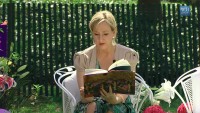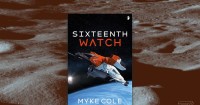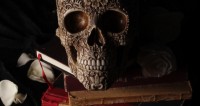
David Ly and Jenny Ferguson In Conversation
this.org – Wednesday July 17, 2019

Meet This Magazine‘s new Poetry Editor, David Ly, and Fiction Editor, Jenny Ferguson. Jenny Ferguson is Métis, an activist, feminist, auntie, teacher, and accomplice with a PhD. She is the author of Border Markers (NeWest Press), a collection of linked flash fiction narratives. Jenny believes writing and teaching are political acts. David Ly is a writer and poet based in Vancouver. His poetry has appeared in range of magazines and anthologies, including The Puritan, The /temz/ Review, Prism international, Pulp Literature, The Maynard, and carte blanche. He is the author of the chapbook, Stubble Burn (Anstruther Press) and the upcoming collection Mythical Man (Anstruther Books, 2020). Here, Jenny and David interview each other about their new roles, what they’re looking for in a poem or story, and the future of CanLit.

Tips From Publishers: How Authors Can Improve Their Chances Of Getting Published
By Hollie Jones
Freelance Blogger
firstwriter.com – Wednesday July 17, 2019

What are the odds of an author getting a book published? According to literary agent Chip MacGregor, the chances could be as low as 0.0065%. If you want to be one of the few writers who are able to make a book and see it on the shelves, you have to get it in front of publishers and give them something they can work with. From finding the right niche to getting an agent, here’s what you can do to improve your chances of getting published.

Author Myke Cole talks writing hard science fiction in his space-set Coast Guard novel Sixteenth Watch
theverge.com – Monday July 15, 2019

Myke Cole is best known for his fantasy work, including his military-focused urban fantasy Shadow Ops series and his more traditionally epic fantasy Sacred Throne trilogy. But with his next novel, Sixteenth Watch, he’s switching things up a bit, swapping out the swords and sorcery for spacecraft in his first novel-length science fiction work.
Like Cole’s other books, his next draws on his personal military experience. But instead of putting the spotlight on the usual branches of the armed forces seen in military science fiction, like the Army or Marines (or even a Space Force), it focuses on the United States Coast Guard attempting to de-escalate a potential war on the Moon between the United States and China.

‘Read, read, read to stoke the furnace,’ and more writing advice from Luis Alberto Urrea
pbs.org – Friday July 12, 2019

When Luis Alberto Urrea was 21 years old, he received a pearl of wisdom from Rudolfo Anaya, considered one of the founding authors of contemporary Chicano literature. “If you can make your Mexican grandmother the grandmother of a reader in Iowa or Nebraska through your art,” Anaya said, “then you have accomplished the most powerful, moral and political act in the world.”
Since then, Urrea says, that advice has woven its way into everything he’s written. Urrea, who was born in Tijuana and whose father is Mexican and mother American, often writes about the Mexican-American experience in his novels, nonfiction, essays and poems. He is a 2005 finalist for the Pulitzer Prize for “The Devil’s Highway,” his nonfiction account of a group of Mexican immigrants lost in the barren Arizona desert. His most recent book, “The House of Broken Angels,” is the June pick for PBS NewsHour-New York Times book club, “Now Read This.”
Below, Urrea shares more advice for writers and readers about establishing a routine (or not), starting anywhere with literature (you never know it will lead), and getting inspiration in unlikely places (even from the symphony).

What Does It Mean to Be a "Real" Writer?
newyorker.com – Thursday July 4, 2019

Talent is like obscenity: you know it when you see it. It’s something that can’t be defined, only recognized—an irreducible and unteachable entity, like charisma or humor, and its confirmation all the more coveted for being so. In his fundamental study, “The Program Era: Postwar Fiction and the Rise of Creative Writing,” Mark McGurl detailed how, in postwar America, anointing and cultivating literary talent became the purview of creative-writing programs and how, in turn, certain modes of writing came to be privileged above others. With this professionalization—indeed, institutionalization—of a nation’s art form, three injunctions popularized by the M.F.A. became holy writ. Write what you know; show, don’t tell; find your voice. Of this trinity, only the second speaks explicitly to craft and seems readily practicable. It’s the first and last dicta, however, that have proved the most influential, not through their utility but through their confounding simplicity. The question isn’t whether you should cultivate knowledge or voice. The question instead is a screamed “Yes, but how?”

Fall in Love with Criticism
By G. Miki Hayden
Instructor at Writer's Digest University online and private writing coach
firstwriter.com – Wednesday June 26, 2019

Let’s raise our glasses to our true friends who can tell us that our participles are dangling and that our story is too soft. And let’s try to be the type of writers who are brave enough to accept and utilize criticism!–Nancy French

4 Must-Read Dark Fiction Magazines
bookriot.com – Thursday June 20, 2019

Literary magazines need love too. Which is why we like to celebrate them here on Book Riot! We’ve had a Literary Magazines 101 to get you started, discussed general short fiction magazines, science fiction/fantasy magazines, and we’ve even had a how-to post on reading (and writing for) science fiction magazines in particular. But today I want to give a little love to my current obsession: dark fiction. Though you can find dark fiction stories in a lot of different literary magazines, including most of the SFF magazines above, this post is a tribute to those literary magazines that specialize in the macabre, whether it’s horror, dark fantasy, or positively grim science fiction.

In dropping Linda Fairstein, the book industry reveals its cowardice
nypost.com – Sunday June 16, 2019

When Galileo Galilei finished writing his last work, “Two New Sciences,” he had trouble finding a publisher.
Galileo had been branded a heretic, and his work was prohibited by the Inquisition. A patron arranged for the book to be published in Venice and then chickened out. The House of Elzevir (whose name lives on in the modern publisher Elsevier) arranged for the manuscript to be smuggled out of Italy and published in the Netherlands, then as now a stronghold of free thinking.
That defiance could very well have brought a death sentence. But a few publishers once had the grit to stand up to the Inquisition.
In our time, most of them cannot even stand up to Twitter, a measly and miserable inquisition of another kind.

Short-story writers are infinitely more creative than novelists
irishtimes.com – Saturday June 15, 2019

“I deeply detest short-story collections – grotty binbags stuffed with the aborted novels of writers too lazy to bring their progeny to full term.” That was Frankie Gaffney’s intro to his review of June Caldwell’s Room Little Darker, which he went on to praise, but I can’t help thinking some novelists should put an end to their flabby oeuvres. Modern novelists remind me of disreputable farmers injecting their cows with growth hormones to earn a few extra euros. By Frankie’s assessment, if I had been assiduous enough to gestate my short stories, I’d have 41 novels by now, which would be some going.

Why Does Writing Suck?
thecut.com – Tuesday June 11, 2019

It is rare, in this day and age, to see a good tweet on the internet, but I did love this one, from New York Times writer Erin Griffith, which includes a graph she designed to depict the dramatic ups and downs of a writer’s self-esteem, which are entirely dependent upon the stage of the writing/editing process they’re in. There is the ecstatic high in submitting a draft to one’s editor, and the inevitable gloom that follows the first round of edits received. Writing may not be the only profession subject to such wildly variable morale, but to hear writers tell it, there’s simply nothing worse. As Dorothy Parker once said (according to the internet, anyway), “I hate writing, but I love having written.”
Get the free newsletter | Submit a news item or article | Get Writers' News for your website





